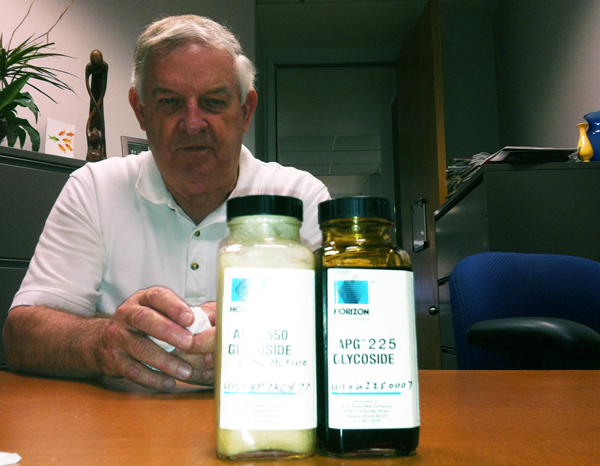
“Mixing is getting to be a lost art,” explained Roy Penney, professor of chemical engineering at the University of Arkansas. While the blending of fluids is still critical to the chemical industry, most current academic research focuses on topics like nanoscience, biological science and biomedical science.
Penney still teaches students and practicing engineers this important skill in his AIChE industrial fluid mixing course, and the North American Mixing Forum, an affiliate of the American Institute of Chemical Engineers, recently recognized his contribution to the mixing field with the Award for Excellence and Sustained Contributions to Mixing Research and Practice.
One of Penney’s most important achievements in industrial mixing research and development was leading the engineering effort at the A.E. Staley Manufacturing Co. and the German company Henkel Co. to design a chemical reactor system to mix and react dextrose, a sugar made from corn, with fatty alcohol from palm oil to produce alkyl polyglocoside. This chemical, which is made from natural, renewable resources, is an important ingredient in personal care products like hand soap and shampoo.
Reacting the two ingredients that make up alkyl polyglocoside requires a strong acid catalyst, and when the reaction is complete, the catalyst must be neutralized quickly using sodium hydroxide.
“You must have very good and fast blending when you introduce the sodium hydroxide,” said Penney, “or the dextrose will degrade in the presence of strong caustic.” The reactor system designed by the Staley Engineering Team is currently in use by Henkel, at plants in Cincinnati, Ohio, and Dusseldorf, Germany. Henkel uses the alkyl polyglocoside in its products, including Dial soaps, and sells it to other companies such as Procter and Gamble.
AIChE has also named Penney a Fellow for his contributions to the organization and to the chemical engineering profession. He has been a member of the AIChE student contest problem subcommittee, which develops and grades problems for undergraduate contests, and he is the author of the 2012 AIChE Contest Problem, “The Production of non-Alcoholic Beer from Alcoholic Beer by use of Membrames." Penney was chair of the Contest Problem subcommittee from 1995 to 2003, and he was chair of programming for the North American Mixing Forum from 1989 to 1995.
Contacts
Camilla Medders, director of communications
College of Engineering
(479) 575-5697,